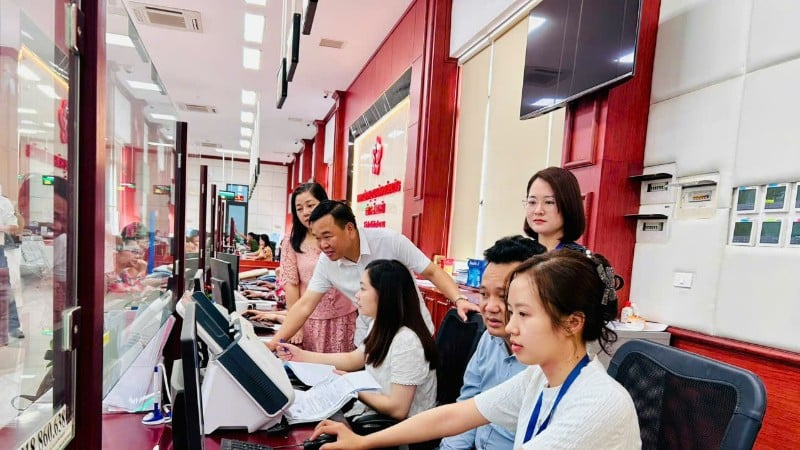
On August 25, a working delegation from the Ministry of Science and Technology had a working session in Thai Nguyen province to survey the implementation and operation of the two-level local government model in the fields of science, technology, innovation and digital transformation.
The two-level government model operates stably and ensures connectivity.
According to the report of the Department of Science and Technology of Thai Nguyen , immediately after the two-level government model was implemented, the Thai Nguyen Provincial Party Committee established a Steering Committee on science, technology, innovation and digital transformation development. The province has also issued more than 200 documents directing the implementation of Resolution 57-NQ/TW. Along with that, 92/92 communes and wards have established public administrative service centers, at the same time, perfected and arranged necessary human resources and equipment to meet the requirements of serving people and businesses in the province.
After nearly two months of operation, the two-level government model has basically operated stably and synchronously, ensuring connectivity from the provincial to grassroots levels. The information system, network infrastructure, video conferencing and digital platforms have basically met requirements, promoted efficiency, reduced time and costs for people and businesses, and increased transparency and convenience.
From July 1 to August 17, 2025, the province received more than 104,900 administrative procedure records, of which more than 61% were submitted online; the online payment rate reached 57.8%. The province also issued more than 36,000 official digital certificates, deployed the C-ThaiNguyen digital citizen application with nearly 450,000 downloads, creating an effective connection channel between the government and the people. Document management systems, official emails, and data integration platforms continued to be effectively exploited, with more than 6.3 million data sharing transactions performed.
Notably, Thai Nguyen's online public service index reached 83.77 points, ranking 2nd out of 34 provinces and cities. 71 science, technology, innovation and digital transformation models were registered for implementation by units and localities; so far, 9 models have been completed. At the same time, the Steering Committee on Science, Technology, Innovation and Digital Transformation Development and Project 06 of the province has directed departments, branches, sectors, units and enterprises in the province to continue focusing on implementing 26 products, including 4 projects, 2 software and 20 models of applying science, technology, innovation and digital transformation to serve social governance and increase labor productivity.
The province has also announced 19 "big problems" on science, technology and digital transformation, calling for the participation of digital technology enterprises in solving practical problems.
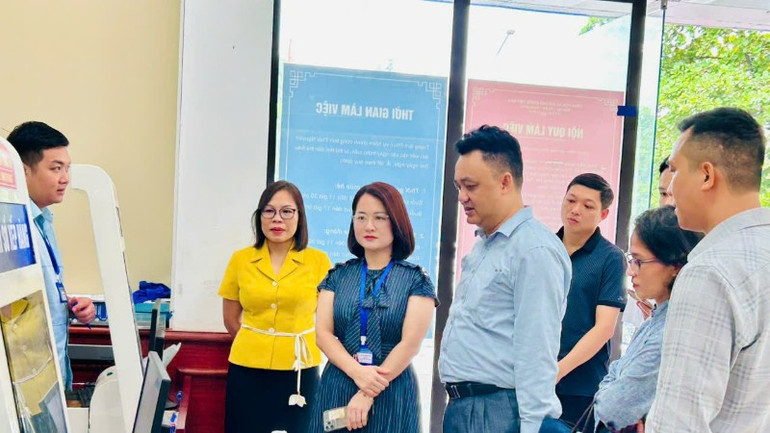
However, Thai Nguyen province still faces some difficulties and problems, such as: some communes and wards still have limited information technology infrastructure and specialized human resources; data synchronization between systems still has problems; there are no policies to encourage technology enterprises to invest in developing infrastructure, technology parks, innovation centers, etc.
The province recommends that the Ministry of Science and Technology promptly organize training courses on professional skills to effectively implement decentralized and delegated tasks; issue guidelines for determining digital transformation job positions that enjoy the support level prescribed in Decree No. 179/2025/ND-CP; assign focal points with professional qualifications to manage and guide the province on issues related to the implementation of Resolution No. 57-NQ/TW and the deployment of information systems serving the two-level government...
Create conditions for people to access digital services conveniently
Reporting to the working delegation at the meeting, Mr. Duong Huu Buong, Director of the Department of Science and Technology of Thai Nguyen, said that in some communes in the highlands and mountainous areas of the province, people are still limited in accessing online public services due to the lack of synchronous telecommunications infrastructure. Currently, Thai Nguyen province still has 55 villages and hamlets without 3G/4G/5G mobile waves; 123 villages and hamlets have not been covered with fiber optic cables.
Faced with the above situation, Thai Nguyen province requested the ministry to continue urging network operators to promptly overcome the “wave lag” situation, creating favorable conditions for people to access digital services. At the same time, it requested to add more resources to digitize all documents, contributing to building a synchronous and effective digital government.
At the meeting, representatives of specialized units of the Ministry of Science and Technology directly discussed and answered specific issues raised by localities; at the same time, shared many practical experiences and guided localities in implementing regulations and professional procedures.
On behalf of the working delegation, Mr. Nguyen Sy Dang, Deputy Director of the Department of Technology Assessment and Appraisal, Head of the working delegation, acknowledged and highly appreciated Thai Nguyen's efforts in implementing the new model. The Department of Science and Technology has had many breakthrough solutions to solve difficulties and problems in operating the two-level local government. At the same time, he affirmed his commitment to accompany and support Thai Nguyen in implementing the two-level government model to ensure smooth and effective science and technology activities.
During the working trip, the delegation had a working session with the People's Committee of Phu Luong commune. According to the report of Ms. Pham Thi Lan Anh, Vice Chairman of the People's Committee and Director of the Phu Luong Commune Public Administration Service Center, from July 1, 2025 to present, the center has received 4,721 administrative procedure records, of which more than 92% have been digitized, the online payment rate reached 44%.
Citizens and businesses all highly appreciate the sense of responsibility and dedicated service attitude of the staff and civil servants; no negative feedback has been recorded. However, the implementation still has some difficulties such as the newly put into operation Mobifone's administrative procedure software system is still unstable, while the number of citizens coming to transact is large, the area for receiving and returning results is still narrow, not meeting actual needs.
On the same day, the Working Group continued to work with the Provincial Public Administration Service Center and Phu Luong Commune Public Administration Service Center to grasp the actual situation. The Group recorded all the difficulties and problems of the locality. The members of the Working Group directly answered many recommendations right at the meeting; at the same time, they said that issues beyond their authority would be summarized and reported to the Ministry's leaders for consideration and resolution in the coming time.
Source: https://nhandan.vn/phat-huy-hieu-qua-mo-hinh-chinh-quyen-2-cap-tai-thai-nguyen-post903460.html





![[Photo] General Secretary To Lam attends the opening ceremony of the National Achievements Exhibition](https://vphoto.vietnam.vn/thumb/1200x675/vietnam/resource/IMAGE/2025/8/28/d371751d37634474bb3d91c6f701be7f)

![[Photo] National Assembly Chairman Tran Thanh Man holds talks with New Zealand Parliament Chairman](https://vphoto.vietnam.vn/thumb/1200x675/vietnam/resource/IMAGE/2025/8/28/c90fcbe09a1d4a028b7623ae366b741d)

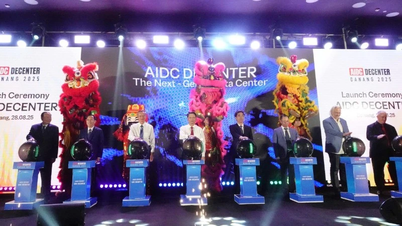





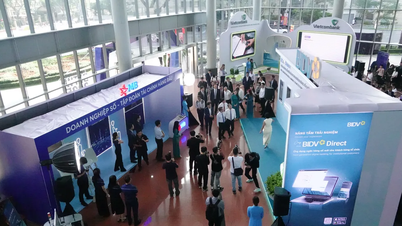







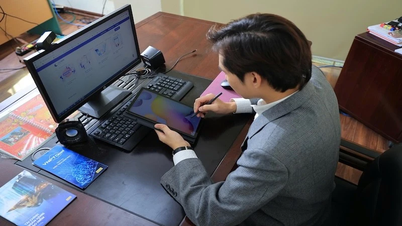
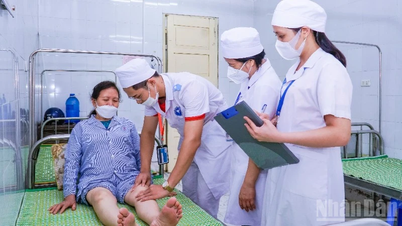
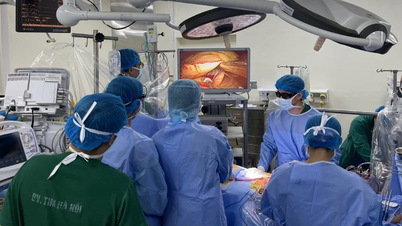

























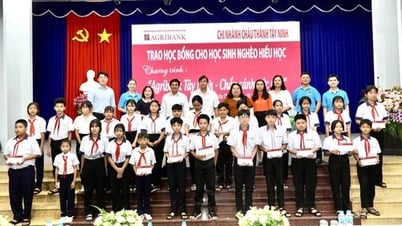



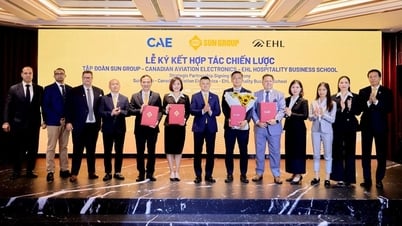


















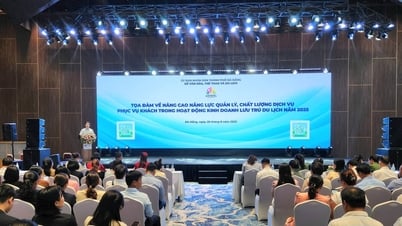

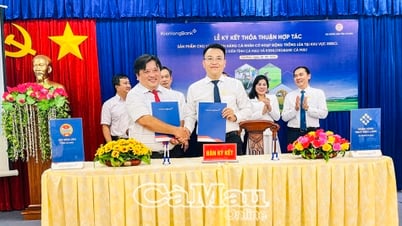


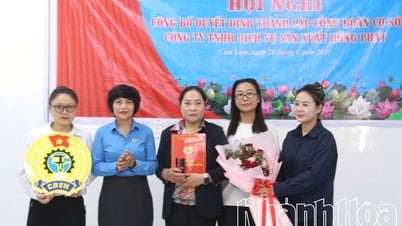

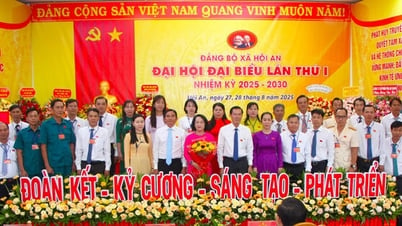

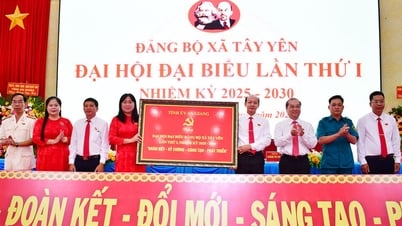







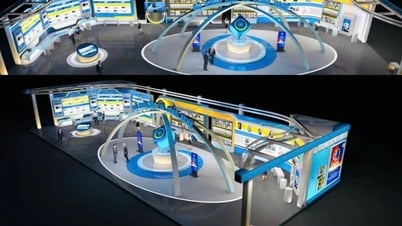





Comment (0)